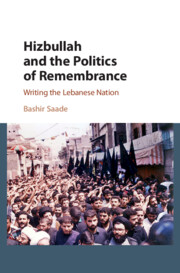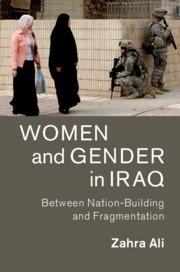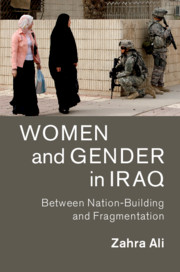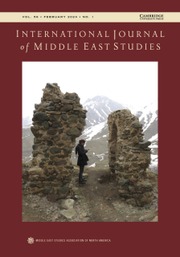Hizbullah and the Politics of Remembrance
Born out of the Israeli occupation of the South of Lebanon, the political armed group Hizbullah is a powerful player within both Lebanon and the wider Middle East. Understanding how Hizbullah has, since the 1980s, developed its own reading of the nature of the Lebanese state, national identity and historical narrative is central to grasping the political trajectory of the country. By examining the ideological production of Hizbullah, especially its underground newspaper Al Ahd, Bashir Saade offers an account of the intellectual continuity between the early phases of Hizbullah's emergence onto the political stage and its present day organization. Saade argues here that this early intellectual activity, involving an elaborate understanding of the past and history had a long lasting impact on later cultural production, one in which the notion and practice of Resistance has been central in developing national imaginaries.
- Proposes novel tools to understand ideological production in the political and social sciences
- Provides new understandings of aspects of political Islam and its relationship with the modern state
- Presents an understanding of the relationship between nationalism, identity and Islamism
- Examines the politics of Hizbullah through its use of a variety of symbols, language and ideologies
Reviews & endorsements
"Through his focus on Hizbullah's cultural production, Bashir Saade has provided a wonderful intellectual discursion into what sets it apart from almost any other contemporary Arab politico-military movement. Central to this book is the notion that ideas are sticky, and tend to survive political changes: Hizbullah has turned them into traditions of doing, of action, through what [Saade] calls archival processes, a politics of remembering, and writing strategies that [Hizbullah's] secretary-general Hassan Nasrallah, familiar to us all, both synthesizes and epitomizes with remarkable precision."
Yezid Sayigh, Carnegie Middle East Center
"A bold and profound treatment of Hizbullah, which is at once a postcolonial cultural and political history of modern Lebanon. A politics of remembrance enables Hizbullah to shape its understanding of the state, its relations with the Christian political other and his claims to history, and its engagement with the Palestinian resistance and liberation movements. This book offers unique insights into self-representation, and Hizbullah's urge to reshape a history of resistance against Israel. It also delineates Hizbullah's ambivalent representation of the state. By analyzing the elaboration of a style, a mode of thinking, a code of conduct disseminated and enacted by party members, this work offers the reader a rich and multifaceted account of ideological production."
Rula Abisaab, McGill University, Montréal
"Saade offers a compelling account of how Hizbullah's ideologues and intellectuals address history - both their own and that of others - to continually rearticulate a common political project. Along the way, this work unsettles prevailing accounts of Hizbullah's ideological development and of the writing of the Lebanese nation and provides the most theoretically sophisticated analysis of Hizbullah writings yet published in English."
Michaelle Browers, Wake Forest University, North Carolina
Product details
August 2016Hardback
9781107101814
188 pages
235 × 158 × 14 mm
0.4kg
2 b/w illus.
Available
Table of Contents
- Introduction
- 1. Mapping the ground of Hizbullah's ideological production
- 2. Martyrology and conceptions of time in Hizbullah's writing practices
- 3. Imagining the Lebanese Christians through writing history
- 4. The debt to the left and the enemy: the politics of resistance
- 5. Confronting the state: writing space and Hizbullah's politics of legitimacy
- Epilogue. Confronting the state: between party and community
- Conclusion.





